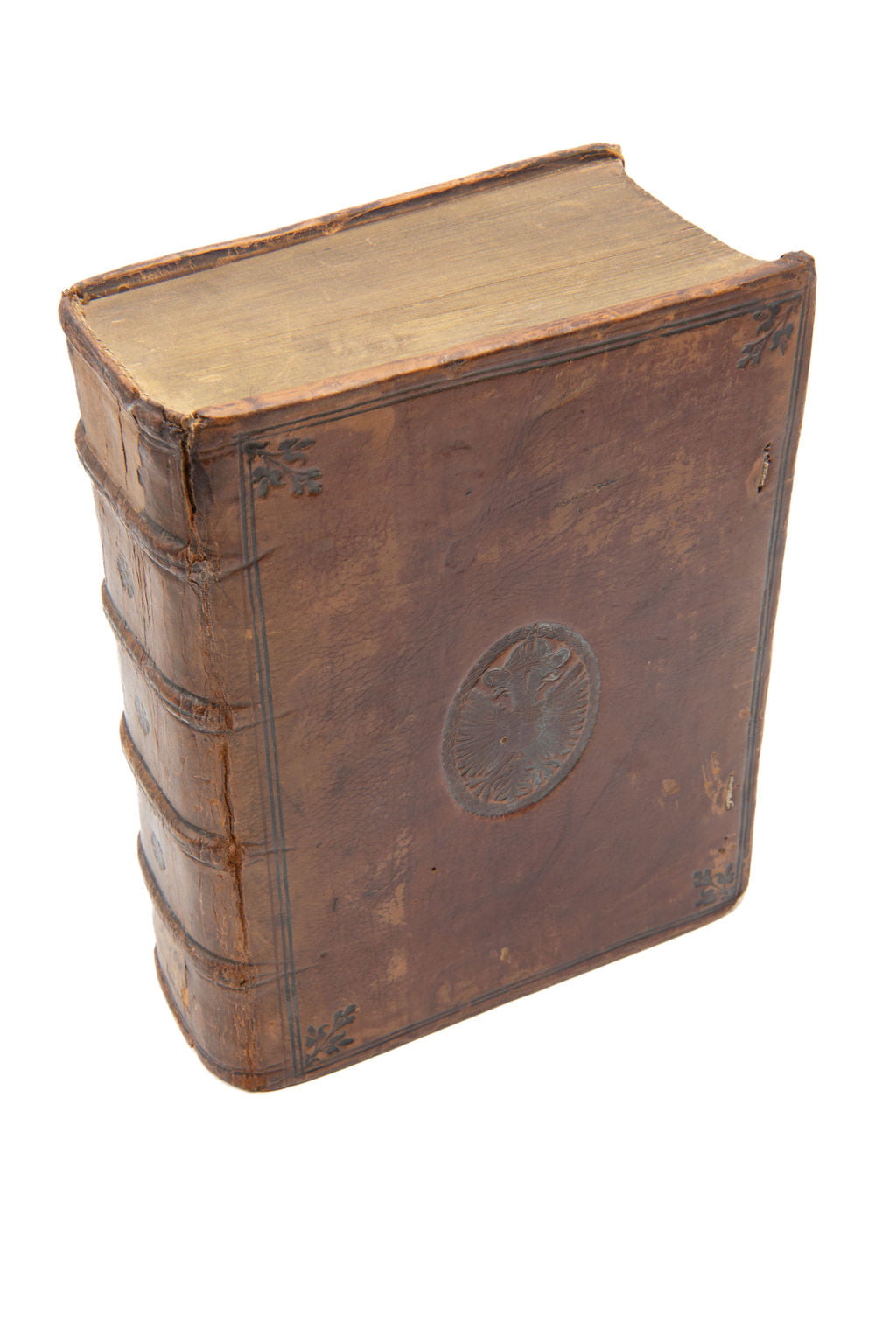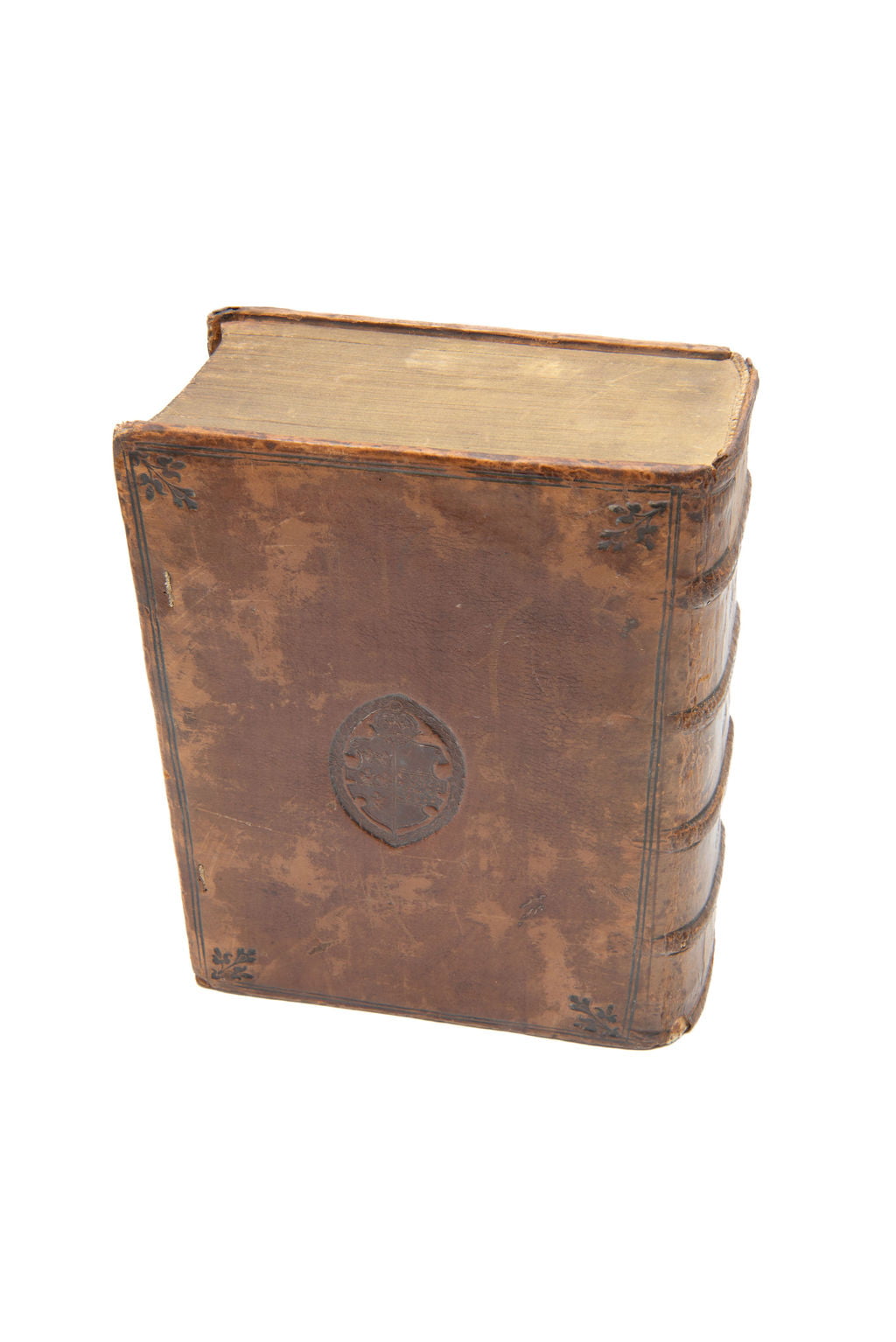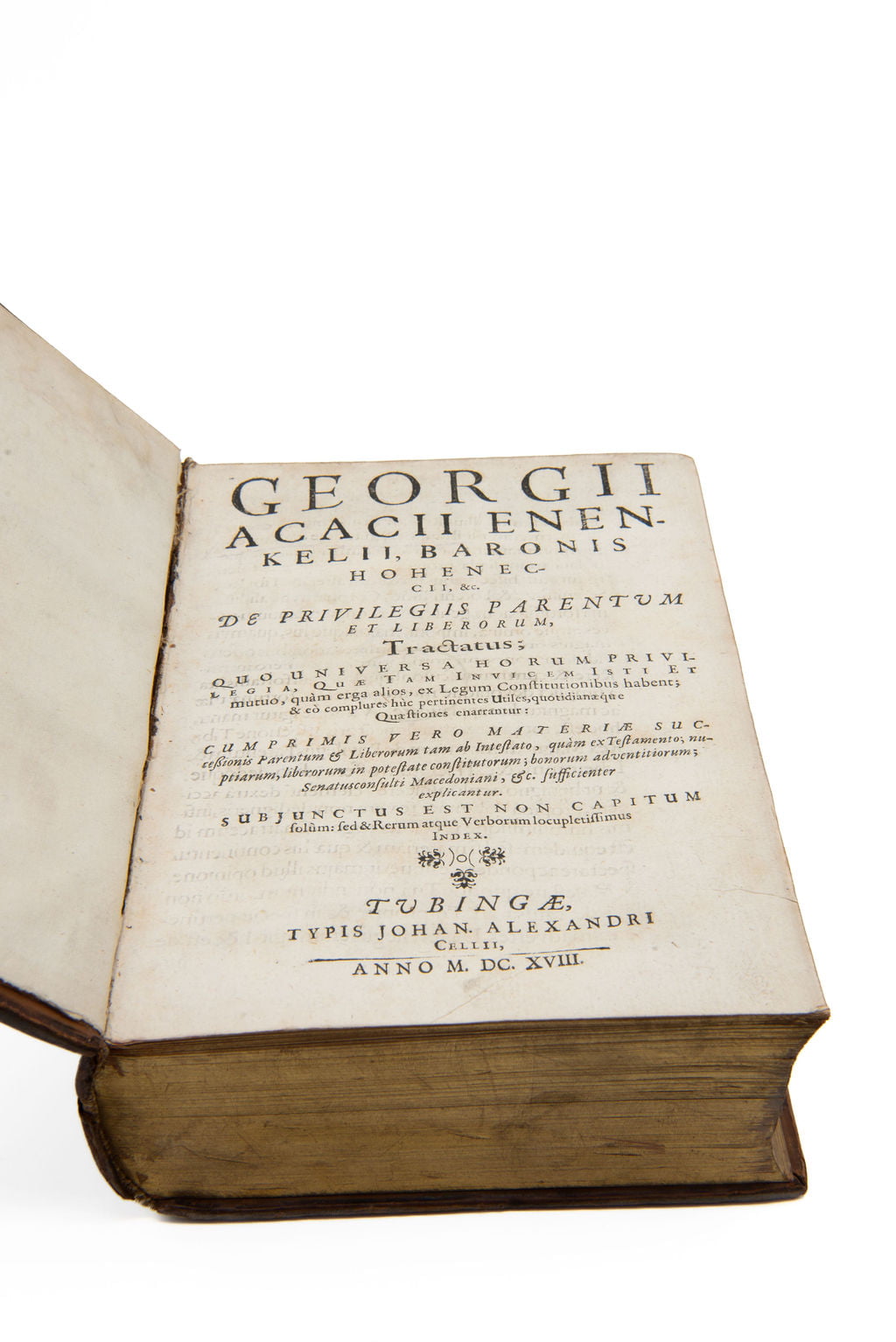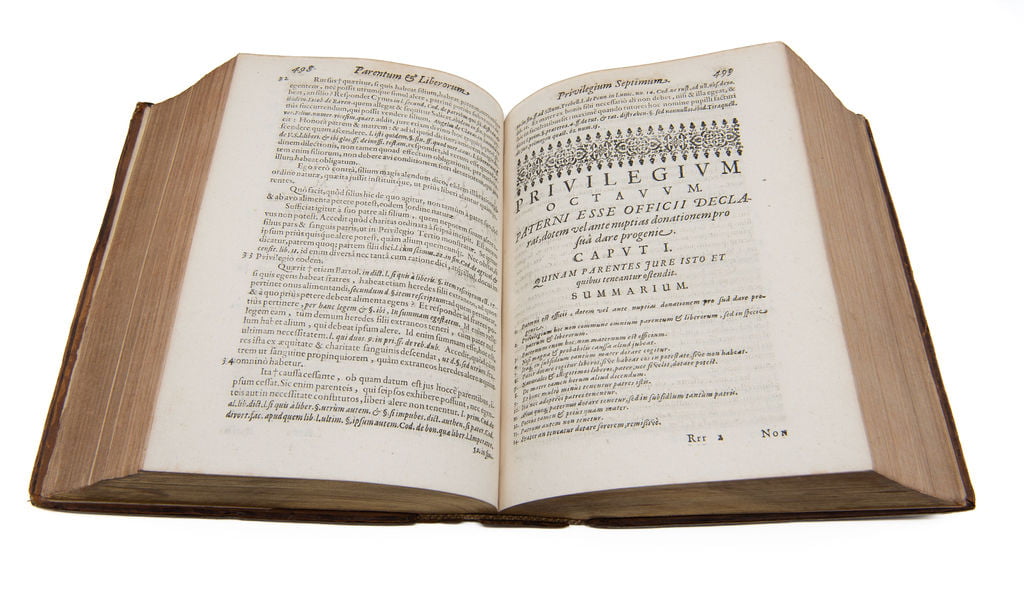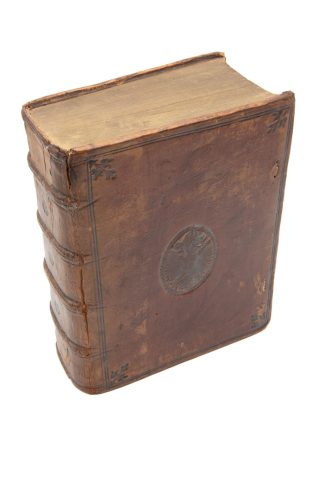ENNENKEL, Georgius Acacius.
AN ARCHDUCAL COPY
De privilegiis parentum et liberorum.
Tübingen, Typis Johan. Alexandri Celii, 1618£2,750.00
FIRST EDITION. Small 4to. pp. (viii) 1018 (l), lacking F 4 (blank) as often. Roman letter, some Italic. Woodcut initials and ornaments. Browned in a few places, small paper flaws to text of 4Q 4 with no loss. A good, clean copy in contemporary (probably Austrian) deerskin, wanting ties, blind-tooling decorated in silver (mostly oxidised), double blind ruled, blind-stamped fleurons to corners, centrepiece with arms of Matthias, Holy Roman Emperor, as Archduke of Austria to upper cover and those of Lower Austria (appropriated by the Habsburgs in the C14) impaled with those of the Duchy of Austria to lower cover, raised bands, blind-tooled rosettes to three compartments, old shelfmark label at foot of spine, a.e.g., extremities a bit rubbed, with tiny loss at foot, spine and upper joint cracked but firm.
A good, clean copy, of excellent provenance, of the first edition of this interesting legal work on Roman and civil law regulating the relationship between parents and children—perhaps the earliest separate treatment of this subject. This copy appears to have been in the library of the Austrian archdukes—quite possibly a presentation; the work is dedicated to Ferdinand I, Archduke of Austria. Georgius Acacius Ennenkel (1573-1620), Baron von Hoheneck, an Austrian Protestant aristocrat, studied classics and philosophy at Strasbourg and Tübingen. He married the daughter of Christoph Freiherr von Althann, president of the Exchequer of the Austrian empire.
Ennenkel calls the parents-children relationship ‘the closest and strongest of all human ties and contracts’. He begins with an introduction to the meaning of ‘parent’ and ‘child’ according to Roman and civil right, with the help of authorities like Baldus de Ubaldis. He comments on dozens of particular circumstances, e.g., that a ‘contemptuous and impious’ father should legally be considered a father nevertheless; the cases in which the mother is Jewish or another relative has acted ‘in loco parentis’; that a baby ‘who died during delivery’ should not be considered legally a son or daughter, as well as any child struck by supernatural monstrosities or portents. The second section is an historical overview of laws among the Romans, Greek and Jews, touching on the murder of children and the extent of parental authority. The following discuss dozens of legal topics, such as ‘pietas’ between parents and children; the rights and duties of fathers (e.g., their authority, their right to take revenge (e.g., killing an adulterous daughter); in case of ‘frightful events’ children are not compelled to obey their fathers, what happens after a father’s death); the necessity of parental consent for marriages; their obligations in terms of sustenance to their children; and inheritance. A scarce and fascinating reference work for the history of children and the family.
Only Berkeley, LC and Princeton copies recorded in the US.BL STC Ger. C17 E339.In stock


